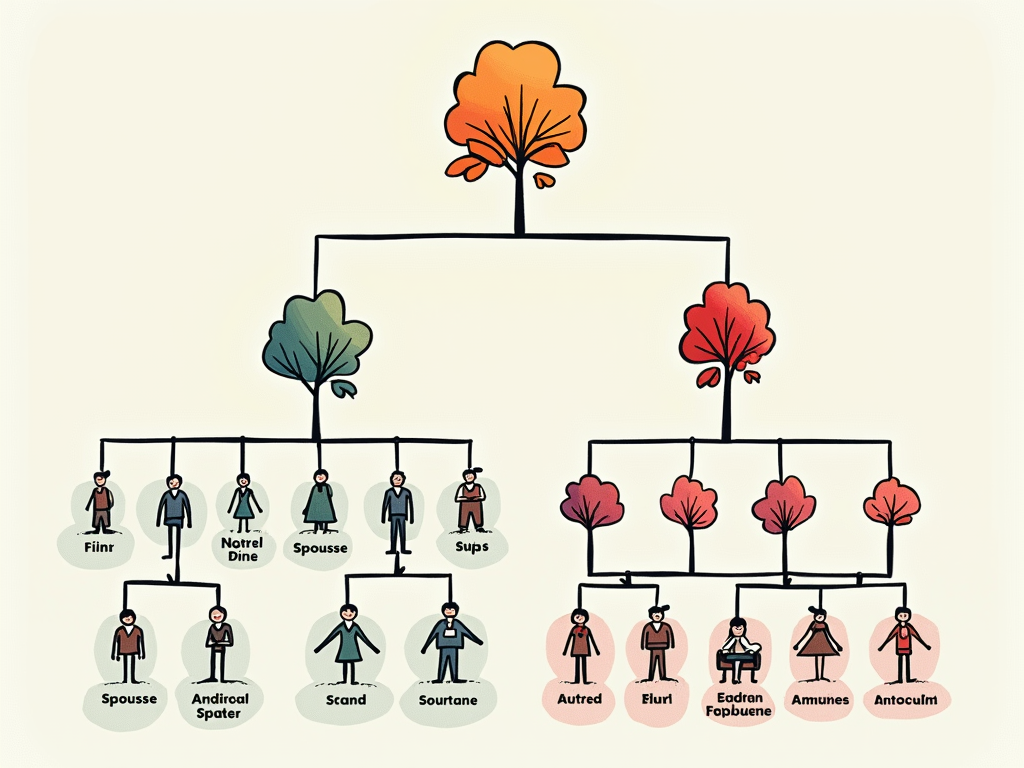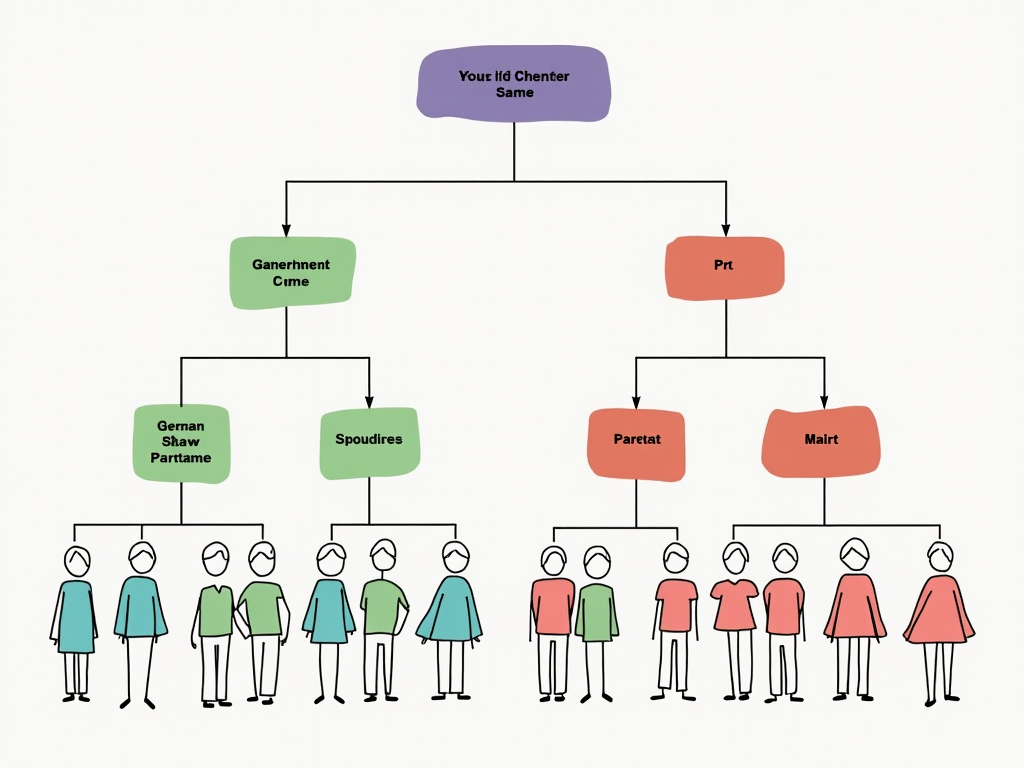Estate planning is like securing an anchor in stormy waters. For investors and private savers, it is essential that their assets are distributed according to their wishes to avoid family disputes. The legal succession can serve as a guide, while a personalized will acts as a precise tool to implement personal wishes. This article explores the complexities of legal succession and shows how to draft a will effectively to prevent conflicts and manage the inheritance optimally.
Legal Succession: The Legal Key to Your Inheritance

Legal succession in Germany ensures that the assets of a deceased person are distributed according to established rules, in the absence of a will or inheritance contract. These rules, set out in the Civil Code (BGB), are essential for bringing clarity and order to the inheritance and for avoiding potential family conflicts.
Among the fundamental principles of legal succession is the ordering of heirs along different lines. The first line includes direct descendants such as children and grandchildren. This group holds precedence in the division of the inheritance. If there are no heirs, the second line comes into play, consisting of the deceased’s parents and their descendants. Finally, the third line regulates the inheritance rights of grandparents and their descendants.
Another central principle is the succession by representation. If a potential heir dies before the deceased, their descendants replace them. This ensures that grandchildren also receive their share if their parents have passed away. This subtle provision reflects the principle of representation, whereby living heirs represent their “branch”, thus excluding younger generations, as long as they themselves are eligible.
Generally, children in the first line inherit in equal parts. The surviving spouse has a legally guaranteed right, the amount of which depends on the marital property state. Without living descendants or children, parents or siblings inherit.
In addition to an orderly structure, legal succession has the safeguard of the right of compulsory portion. This ensures that immediate family members such as children, parents, or spouses receive a minimum share, even if there is a will that seemingly excludes them. This fundamentally guarantees them half of their legal share of the inheritance.
All these provisions create a clear framework. However, thanks to the freedom of testation, there remains room for individual decisions. A will or an inheritance contract gives the testator the option to deviate from the rigid legal structure and to consider personal wishes. A will is legally valid, whether handwritten or notarized, while inheritance contracts must always be notarized. The boundaries of this freedom are marked by the right of compulsory portion, which cannot be ignored.
In conclusion, it is important to emphasize that regular review of testamentary provisions and well-considered estate planning can significantly contribute to family peace. Through lifetime transfers, tax considerations, and possibly appointing an executor, potential conflicts and tax disadvantages can be minimized.
The Will as a Key to Individual Wealth Management

A will is not just a legal document; it is the personal expression of the last wish. It serves as a decisive anchor to regulate in detail and clearly the distribution of assets in case of death according to one’s wishes. Through careful drafting of a will, heirs can ensure that their values and legacies are conveyed in accordance with their wishes, thus avoiding conflicts among the heirs.
A will can be drafted in two ways: handwritten or through notarized deed. The handwritten variant requires the complete writing and signature of the testator, while notarization includes professional advice and validation by a notary. This flexibility in procedure highlights the central role of the will in estate planning.
The content of a will is varied and can include, in addition to the designation of heirs, specific instructions such as legacies or division provisions. Through the designation of heirs, testators can establish who and to what extent should benefit from their inheritance. A will allows for a conscious deviation from legal succession, although the freedom of testation is still limited by the claims of compulsory portion from close relatives such as spouses or children. These must also be considered in case of disinheritance.
Also significant is the Berlin testamentary provision, where spouses designate each other as sole heirs. Only after the death of the last living spouse do the children become heirs. However, this construction can generate a high tax burden, as inheritance taxes may be assessed in two phases – an important aspect to consider.
After the death, the practical implementation of the will begins. For this, the document must be opened at the probate court. It contains instructions for managing and liquidating the assets, with the testamentary provisions executed by an executor or the heirs themselves. Debts that may be part of the estate must also be settled.
Ultimately, a will is more than just a means to secure the estate. It is an essential tool for maintaining family peace and asserting individual will after death. Conscious preservation and regular review of the will ensure that it always complies with current life circumstances and legal requirements.